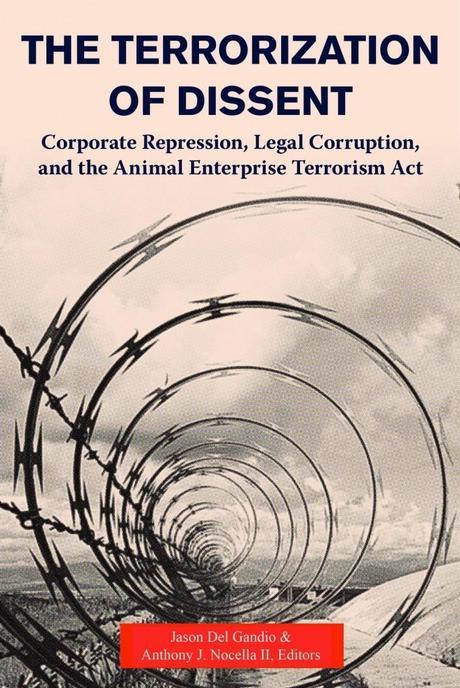by Will Potter / Green is the New Red

The following is from the preface by Will Potter:
When I testified before the U.S. House Judiciary Committee about the Animal Enterprise Terrorism Act in 2006, I argued that such sweeping legislation criminalizes First Amendment activity, whistleblowing, and nonviolent civil disobedience as “terrorism,” and would have a chilling effect on free speech. Members of the committee, including Rep. Bobby Scott (D-VA) and Rep. James Sensenbrenner (R-WI), dismissed my concerns and promised that the law would only target property destruction and violence.
This has been the major talking point from supporters of this legislation for years: the law is only about “extremists,” and as long as you aren’t part of the Animal Liberation Front, you have nothing to worry about. Lawmakers went so far as to respond to my concerns by including empty rhetoric in the rules of construction promising that the bill “does not include any lawful economic disruption (including a lawful boycott) that results from lawful public, governmental, or business reaction to the disclosure of information about an animal enterprise.”
Since that time, the true scope of this legislation has been exposed by prosecutions, uncovered FBI documents, and new campaigns by industry groups. It has become undeniably clear that members of Congress were either duped by corporations and the FBI or they intentionally lied to the American people about their intentions. The true targets of the AETA are not arsonists or underground activists. Instead, the people most at risk are undercover investigators and aboveground activists.
The very first AETA arrests were four animal rights activists in California who were never accused of property destruction or violence. The government argued that their conduct—which included “chalking defamatory slogans,” protesting while wearing masks, distributing fliers, and attending a home protest—amounted to a campaign of terrorism. In a major blow to the government’s overzealous use of the new law, a U.S. District Court threw out the indictment because prosecutors did not clearly explain what, exactly, the protesters did. “In order for an indictment to fulfill its constitutional purposes, it must allege facts that sufficiently inform each defendant of what it is that he or she is alleged to have done that constitutes a crime,” Judge Ronald M. Whyte’s said in his ruling. “This is particularly important where the species of behavior in question spans a wide spectrum from criminal conduct to constitutionally protected political protest.”
For more click here

